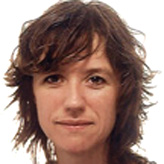Free Buddhist Audio Podcast - Relaunched!
 Over the years at Free Buddhist Audio we've built up quite a following for our podcast. Each new episode is downloaded by around 15,000 people, with thousands more using our extensive backlist of talks distributed in this super easy-to-use way. This week, we're delighted to be relaunching the classic monthly fba podcast with much better sound quality and some snazzy new presentation. We'll be updating this more often from now on - every two weeks or so - and will be introducing a second shorter, more frequent podcast in the near future! More on that later, but for now, check out our podcast page for easy instructions on how to become a listener!
Over the years at Free Buddhist Audio we've built up quite a following for our podcast. Each new episode is downloaded by around 15,000 people, with thousands more using our extensive backlist of talks distributed in this super easy-to-use way. This week, we're delighted to be relaunching the classic monthly fba podcast with much better sound quality and some snazzy new presentation. We'll be updating this more often from now on - every two weeks or so - and will be introducing a second shorter, more frequent podcast in the near future! More on that later, but for now, check out our podcast page for easy instructions on how to become a listener! To get us started, where better to begin than at the recent International Triratna Retreat at which our community's name change became official? And who better to relaunch our podcast than Vajradarshini, one of our most popular and most eloquent and entertaining speakers? In 'Everything Matters - Turning Consumerism on its Head', Vajradarshini points out that we live in a world of things and there’s a world of practice in things. As consumerism is defined as ‘to destroy’, we are challenged to find ways to turn consumerism on its head and find the Truth in our relationship to Things. Accompanied by Kavyasiddhi reading both poetry and prose, this beautiful Dharma gem is worth hearing again and again.
To get us started, where better to begin than at the recent International Triratna Retreat at which our community's name change became official? And who better to relaunch our podcast than Vajradarshini, one of our most popular and most eloquent and entertaining speakers? In 'Everything Matters - Turning Consumerism on its Head', Vajradarshini points out that we live in a world of things and there’s a world of practice in things. As consumerism is defined as ‘to destroy’, we are challenged to find ways to turn consumerism on its head and find the Truth in our relationship to Things. Accompanied by Kavyasiddhi reading both poetry and prose, this beautiful Dharma gem is worth hearing again and again.Talk given at the 2010 International Sangha Retreat.
Track listing
1. Wooly tank tops, potatoes and trees: We live in a world of things and there’s a world of practice in things.
2. Consumerism is to destroy; Restlessness, continually searching there something; Keeping up with the ‘Jones’; Celebrities and the media distorting our views of the world and how people live.
3. Our need to consume is affected by what we’ve become accustomed to; Living conditions like drugs; Trying to sustain pleasure through our relationship to things.
4. Observing our response to the laws of consumerism; Suddenly feeling like what we have is not enough; Having less than others contributes to their happiness.
5. Restlessness and inner poverty, something seems to be missing is intuition into the Truth; The Three Laksanas, the Three Characteristics of Conditioned Existence; Everything is Impermanent, Insubstantial and Unsatisfactory; Trying to buy pleasure, comfort and security.
6. The image of the renunciate, the flavor of the hermit; Living a beautiful, simple life; What does it mean to practice renunciation in the world? Turning more towards things and the world; Things show us Reality.
7. Purelands are where everything communicates the Dharma to us, we just need to pay attention; The world we live in shows us Reality through the Three Laksanas.
8. Impermanence is as if everything is on a journey; Objects revealing the beauty in the passing of time; speeded up photography and faded images.
9. Insubstantiality is as if everything is a pattern; rather than having an essence, we encounter the coming together of various conditions that make up what an object is.
10. Unsatisfactoriness; human life has both pain and joy woven into it. Much of our pain comes from resistance to impermanence and insubstantiality; The tears in things and the story of Winchester Cathedral stain glass window.
11. Wabi-Sabi places more value on things that have been mended; the scars and imperfections of being human.
12. Finding beauty in our life helps us turn towards Reality; Moving towards experiences of the Laksanas leads to treasures; The Three Doorways of Liberation.
13. Finding beauty and meaning in everyday objects; Riku and the Japanese tea ceremony; mindfulness is the catalyst of deeply experiencing objects; Andrew Juniper on the pith of Wabi-sabi: the love of life distilled into form
14. If consuming is to destroy, how can we turn that on its head? Three things to practice: experiencing things, creating things and cherishing things; Rumi on the treasure of poverty; Practicing in a world where we only see precious things; Barbara Kingsolver on potatoes.

 rss
rss
0 Comments:
Post a Comment
<< Home